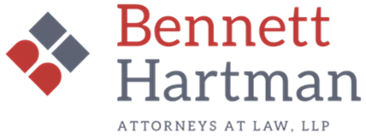It is no secret that many members of the United States Supreme Court are extremely hostile to unions. In Knox v. SEIU, 132 S. Ct. 2277 (2012), the Court held that the Union failed to follow the proper procedures when it increased its dues and fair share fees for political purposes related to several hotly contested ballot measures and other political activities. While the result was not entirely unexpected, the majority opinion went beyond what even the plaintiffs were asking for, holding that if a public sector union seeks to increase dues or levy a special assessment mid-year for any purpose, the union must provide non-members a separate notice and may not collect any funds from non-members without their affirmative consent. That is, for the first time, the Supreme Court held that the union must offer an opt-in system in order to protect non-member First Amendment rights.
While the court did not overrule prior precedent, the majority expressed extreme skepticism about the correctness of the “opt-out” approach, referring to it as an “anomaly” and a “remarkable boon for unions.” The opinion also includes scathing comments about the political activities of unions and how they are not to be trusted to properly audit and report such activities to non-members.
The same anti-union sentiment was evident in the Court’s recent decision in Harris v. Quinn, (June 30, 2014). In that case, the majority struck down a portion of an Illinois law that required all homecare workers represented by a union to pay their fair share of the cost of that representation. Similar to Oregon, Illinois law authorized homecare workers who are hired directly by clients but who are paid with state funds to organize and collectively bargain with the state to set basic terms of employment. The majority, in an opinion written by Justice Alito, found that because these employees are not “full-fledged” public employees, the fair share provisions in the collective bargaining agreement were unconstitutional.
Plaintiffs in that case urged the Court to expressly overrule Abood v.Detroit Bd. of Ed., 431 U.S. 209, 222 (1977), the lead case upholding “fair share” fees in the public sector, and unions expressed some relief that it declined to do so. However, the majority decision demonstrates a serious disdain for value of collective bargaining or precedent. As he did in Knox, Justice Alito took cheap shots at Abood and, without any convincing rationale other than he wanting to limit Abood, he found that Abood’s concerns with preventing free ridership and promoting labor peace were not sufficiently substantial for these “partial” public employees to justify any infringement on their constitutional right not to associate.
In a strongly worded dissent joined by four members of the Court, Justice Kagan emphasized that the doctrine of stare decisis would prevent overturning Abood given the lack of any new “special justification” and the existence of enormous reliance interests: “[T]he Abood rule is deeply entrenched, and is the foundation for not tens or hundreds, but thousands of contracts between unions and governments across the Nation.” Thus, “[o]ur precedent about precedent, fairly understood and applied, makes it impossible for this Court to reverse [Abood].” Justice Kagan also criticized the majority for failing to recognize that the State was the joint employer of the homecare workers where the State continued to have authority over workforce-wide conditions of employment, such as wages and insurance.
What does this mean for Oregon’s public sector unions?
In Oregon, anti-union forces have often taken aim at unions through the initiative process. BHMK has worked with our union clients and allies to ensure that these initiatives have accurate and informative ballot titles and that they fail at the ballot box. As a result, Oregon law still protects the right of public employee unions to require all bargaining unit members to share in the cost of representation the union is legally obligated to provide.
These decisions from the Supreme Court threaten those rights. Like Illinois, Oregon statutes authorize homecare and childcare workers to bargain collectively. Harris will now require unions representing those workers to change their practices with regard to fair share.
For other public employee unions, we need to understand that the current conservative majority on the Court appears prepared to overturn the “opt-out” approach for all fees and/or to seriously limit what is a “chargeable” expense for non-members. In the meantime, neither Harris nor Knox requires any changes in the union’s standard procedures for providing notice and an opportunity to “opt-out” for annual dues or fees. However, if the union determines it needs to increase dues and fees and/or to impose a special assessment mid-year for any purpose, the Knox requires the union to send out a fresh notice to non-members and only collect funds from those non-members who affirmatively opt-in.
If you have any questions about the implications of Harris v. Quinn or Knox v. SEIU, please do not hesitate to contact attorneys Aruna Masih or Margaret Olney.

